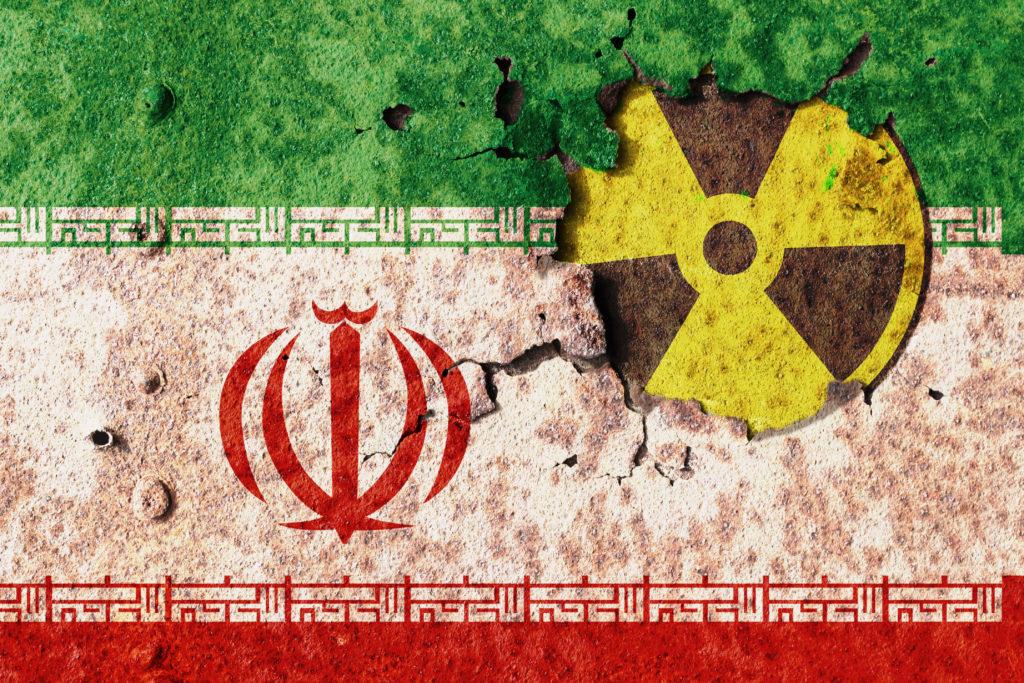
Iran flag on metal wall. Conflict of atomic technology
The important visit of new Israeli Prime Minister Naftali Bennett to Washington last month was largely overshadowed by the Afghanistan debacle. A suicide attack at Kabul airport even delayed the meeting between the Israeli leader and US President Joe Biden, who was preoccupied with the severe implications of the most chaotic foreign policy crisis his administration has faced.
Iran and America’s re-entry to the Joint Comprehensive Plan of Action were top of Bennett’s agenda during his meeting with the American leader. He wanted to convince Biden that a strong regime in Iran would be catastrophic for both of their countries.
Even though the meeting did not get its fair share of media coverage, several news outlets reported that the Israeli leader assured Biden that he would act differently from his predecessor, Benjamin Netanyahu, by refraining from publicly campaigning against the Iran nuclear deal.
In a speech before a joint meeting of Congress on Capitol Hill in Washington in 2015, Netanyahu criticized the US and described the JCPOA as a “very bad deal.” The deal will “guarantee” that Iran gets nuclear weapons because it allows the Islamic Republic to keep much of its nuclear infrastructure in place, he said. The alternative to a bad deal is not war, as some supporters of the deal with Iran have said, but “the alternative to this bad deal is a much better deal,” Netanyahu said.
The Biden administration is aiming to build a new and improved personal relationship between the Democratic president and the leader of Israel, following the eight-year-long touchy and edgy relationship between Barack Obama and Netanyahu.
According to the White House, the Iranian threat was discussed during the Biden-Bennett meeting. “The president made clear his commitment to ensure Iran never develops a nuclear weapon. The leaders reviewed steps to deter and contain Iran’s dangerous regional behavior. They reiterated their commitments to work constructively and deepen cooperation to address all aspects of Israel’s security against Iran and other threats,” a statement read.
What about the fate of the US-Iran talks that were adjourned in June after the hard-liner Ebrahim Raisi won Iran’s presidential election? For how long should Washington wait for Tehran to decide if it wants to go back to the negotiating table?
Click HERE to read more.
- Moderate Muslim voices deserve to be heard in America - July 25, 2023
- Specter of Afghanistan debacle haunts Biden - May 25, 2023
- Washington should scrutinize the motives behind Qatar’s unfriendly policies - April 7, 2023
